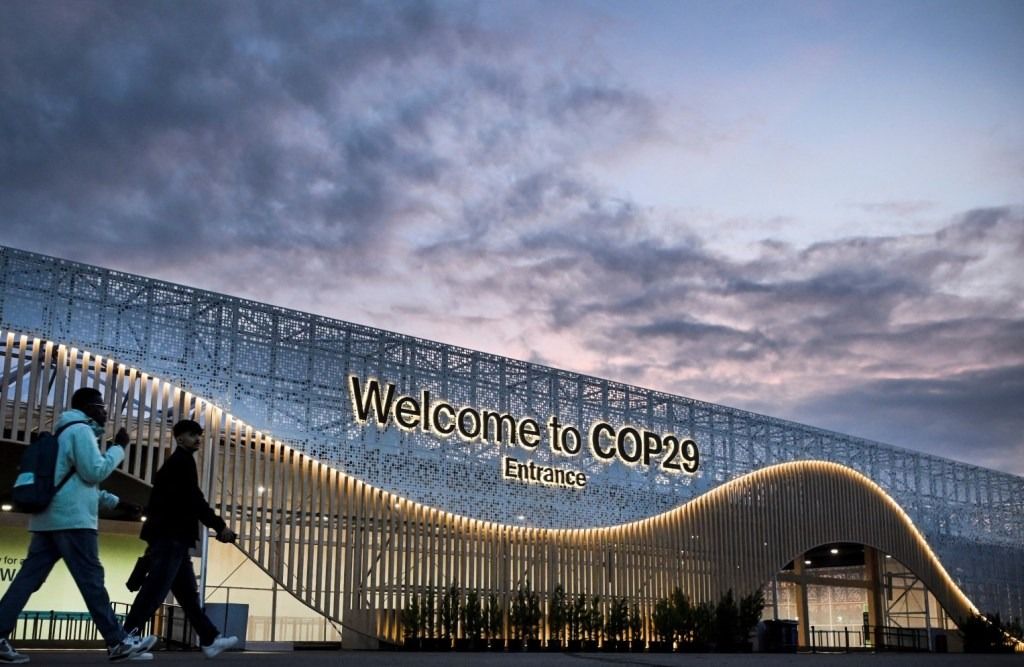COP29 achieves worldwide recognition for its breakthrough climate outcomes

As the international community focuses on COP30 in Belém, Brazil, comparisons with last year’s COP29 in Baku naturally arise. A minor fire incident at the COP30 venue - quickly contained thanks to prompt action by Brazilian emergency services - served as a reminder of the challenges any host country faces when organizing an event of such scale and complexity. Fortunately, no serious injuries were reported, and Brazilian officials have stressed that the investigation will clarify the cause. Azerbaijan has expressed full solidarity with Brazil, recognizing that unforeseen situations can occur anywhere and that what ultimately matters is the shared global commitment to advancing climate action.
Against this backdrop, COP29 remains notable for the clarity of its outcomes and the strong foundations it laid for future conferences, including COP30. For Azerbaijan, hosting COP29 was not only a major national responsibility but also an opportunity to contribute meaningfully to the global climate agenda. The country mobilized significant resources to ensure a smooth, effective, and inclusive summit, resulting in unanimous praise from participating states - an acknowledgment of both Azerbaijan’s organizational capacity and its dedication to international cooperation.
A defining achievement of COP29 was the adoption of the Baku Finance Goal (BFG) - a groundbreaking commitment to mobilize $1.3 trillion annually for developing countries. By establishing clear expectations for developed nations to contribute at least $300 billion annually by 2035, the BFG significantly elevated global climate finance ambitions and provided a reliable framework that COP30 and future COPs can build upon.
For the first time since the signing of the Paris Agreement, Article 6 was fully operationalized at COP29. This long-awaited step unlocked regulated international carbon markets, ensuring transparency, environmental integrity, and new opportunities for global emissions reductions. This achievement provides a technical foundation that will support future negotiations, including those underway in Belém.
COP29 also fully institutionalized the Loss and Damage Fund, with pledged contributions already exceeding $730 million. For small island states and climate-vulnerable nations, this marks a significant advancement. Azerbaijan made prioritizing support for these countries a central element of its presidency - a commitment fully aligned with Brazil’s own focus on climate justice at COP30.
Another major achievement was the adoption of the Baku Adaptation Roadmap and the Global Adaptation Target document. These decisions ensure that adaptation - critical for many developing countries - receives systematic attention within future COP processes. This forward-looking framework is designed to assist all host nations, including Brazil, as they navigate evolving climate negotiations.
COP29 paid special attention to the urgent climate challenges faced by Small Island Developing States (SIDS)—one of the most climate-vulnerable groups in the world. Azerbaijan brought together representatives of SIDS, climate experts, and international stakeholders to highlight the fragility of island ecosystems, the risks of sea-level rise, and the critical need for targeted adaptation financing.
Azerbaijan has made significant efforts to elevate the voices of SIDS and address their climate-related losses, particularly where environmental threats are most severe. This included emphasizing biodiversity protection, resilience building, and the importance of ensuring that climate finance mechanisms specifically address the unique needs of highly vulnerable regions. The prominence of these issues at COP30 in Brazil is, in many ways, a continuation of the Baku initiative and reflects the momentum Azerbaijan helped generate.
COP29 also succeeded in finalizing the long-awaited 10-year Lima Work Programme on Gender, demonstrating Azerbaijan’s ability to build consensus around sensitive and long-negotiated issues. This outcome strengthens the practical and inclusive dimensions of global climate diplomacy.
While COP29 produced substantial breakthroughs, Azerbaijan views its achievements not as a point of competition but as a foundation for global progress. Azerbaijan remains ready to support Brazil’s COP30 presidency in any capacity—through knowledge-sharing, climate finance expertise, adaptation frameworks, or technical coordination. Both countries bring complementary strengths: Azerbaijan in institutional and financial frameworks, and Brazil in biodiversity conservation and climate justice.
COP29 demonstrated that with determination, diplomacy, and careful planning, a host country can deliver major outcomes that shape global climate policy. Azerbaijan is proud to have contributed to this progress and remains committed to supporting Brazil and all COP30 participants as they work to advance key climate priorities. In an era of accelerating environmental challenges, the continuity between COP presidencies - and the spirit of cooperation between nations like Azerbaijan and Brazil—will remain essential for achieving shared climate goals.
Here we are to serve you with news right now. It does not cost much, but worth your attention.
Choose to support open, independent, quality journalism and subscribe on a monthly basis.
By subscribing to our online newspaper, you can have full digital access to all news, analysis, and much more.
You can also follow AzerNEWS on Twitter @AzerNewsAz or Facebook @AzerNewsNewspaper
Thank you!

